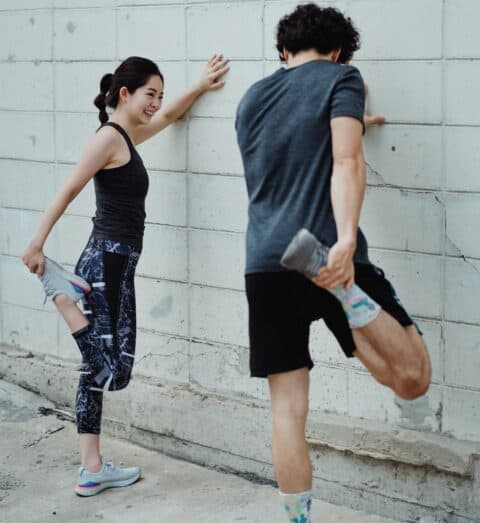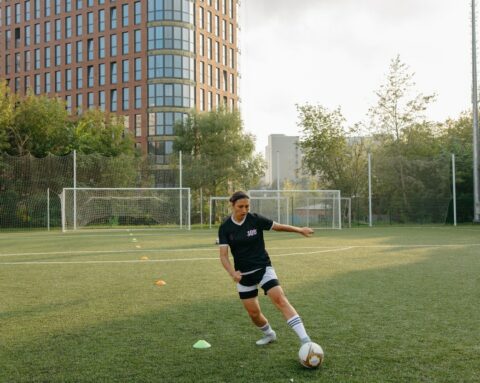One of the most common reasons for groin pain is known as adductor tendinopathy. The five hip adductor muscles are the adductor brevis, adductor longus, pectineus, gracilis and magnus. The first three mentioned are the short adductors and they reach from the pelvis to the thigh bone. The last two muscles stretch from the pelvis to the knee. ⠀⠀
The five adductor muscles function to pull the legs together and are often used when playing sports such as AFL or soccer which involve a lot of sprinting. adductor tendinopathy is most commonly caused by overuse or previous injuries such as groin strains.
Symptoms
The main symptoms of Adductor Tendinopathy are as follows:
– Finding it difficult to run particularly when sprinting⠀
– Feeling pain when your hip flexes⠀
– Feeling pain at specific points on the bone ⠀
– Pain that radiates down the leg emerging from the top of the adductor muscle⠀
– pain that is felt when the legs are pressed together. ⠀
It is important to have your myotherapist diagnose your injury during your initial consultation to begin treatment as soon as possible.
Tendon Injuries
Your tendons are very tough fibres that function to connect your bone to muscle. You will find that most tendon issues commonly occur close to joints such as in the ankle, elbow, knee or shoulder. Often people will assume that a tendon injury happens suddenly, however, it is more likely that the injury occurred as a result of repetitive movements causing the tendon to overload. ⠀
Tendinosis is the most common form of tendinopathy. As the collagen degenerates in the tendon due to overloading, tendinosis occurs. As tendinosis is a non-inflammatory condition, it does not respond well to anti-inflammatory treatments. You will find the best results happen when the diagnosis is early and intervention can occur!
Causes of Tendon Injuries
Tendon injuries are usually the result of gradual wear and tear over time or from overuse. They are most commonly observed in people who use the same motions repeatedly in sport, their jobs or day to day lives which could cause damage to a tendon. ⠀
If the load placed on your tendon is too great to withstand, your tendon may become stressed. Once the tendon is stressed, it will sustain micro-tears which cause swelling and inflammation. If your tendon injury is managed properly it can heal quite quickly. If the high load is sustained on the tendon the pressure can exceed the rate of repair causing the damage to become progressively worse which can cause dysfunction and pain.
Phases of Tendinopathy
There are four phases of a tendon injury that can occur depending on how quickly your tendon can adapt to pressure. ⠀
Phase 1 of tendinopathy is known as reactive tendinopathy. In this stage, the tissue will begin normal adaptation and recovery is usually short and uncomplicated.
If you experience Phase 2 of tendinopathy your tissue will still attempt to heal, however, it is extremely important to prevent deterioration. ⠀
Phase 3 of tendinopathy is known as Degenerative Tendinopathy. If your Phase 2 tendinopathy deteriorates you may experience permanent cell death.
Finally, in Phase 4 known as a Tendon Rupture or Tear, you will experience a loss of function and surgery is usually the only option available. ⠀
Having your tendinopathy examined professionally is extremely important when determining the most effective treatment. Certain exercises may only be attempted once the correct phase is diagnosed.
Treatment:
There are many cases where you can begin your tendon injury recovery from the comfort of your own home. In the initial stages, it is extremely important to avoid any activities that make the pain worse and to rest as much as possible. ⠀
You should apply cold or ice packs twice an hour in 20 minute periods during the first 72 hours post-injury. It is then important to speak to your myotherapist to discuss a range of gentle stretches and exercises that can help to prevent stiffness. Your myotherapist will then be able to assess your biomechanics to design a program that will return strength to the affected area. ⠀
If you would like to book a session today, you can head to our online booking section right now! ⠀
http://www.studioms.com.au/book-your-appointment-online/






